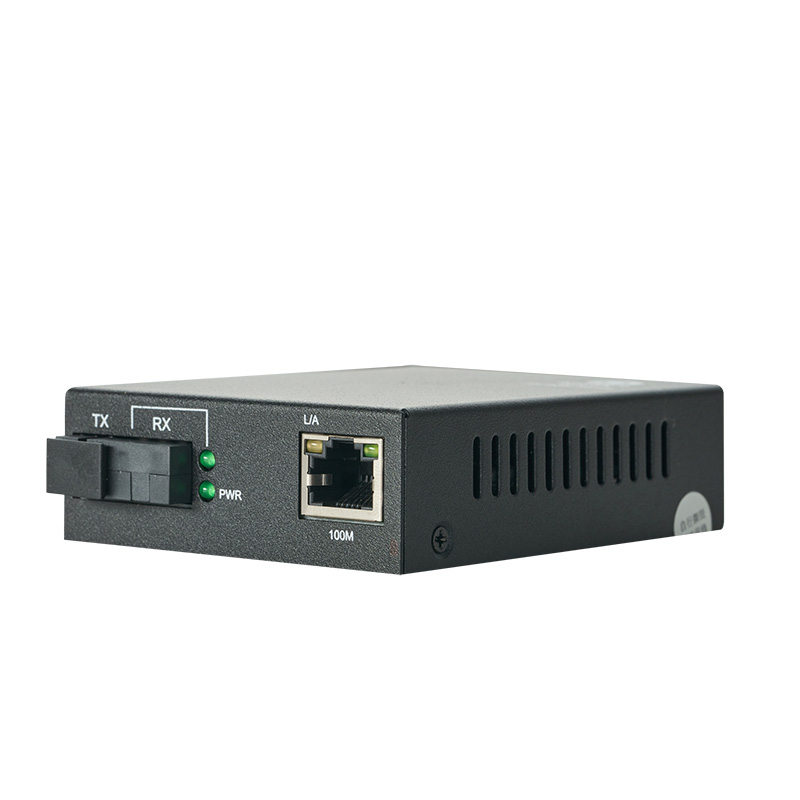The function of media converters is to convert the electrical signals we want to send into optical signals and send them out. At the same time, they can convert the received optical signals into electrical signals and input them to our receiving end. Media converters are generally used in practical network environments where Ethernet cables cannot cover and fiber optic cables must be used to extend transmission distance. At the same time, they play a huge role in helping to connect the last kilometer of fiber optic lines to the metropolitan area network and the outer layer of the network.
The role of media converters in data center networks
The media converter is used to transmit and receive optical signals from large capacity data centers. Typically, data centers have hierarchical types of Ethernet networks. These networks can be copper based, fiber based, or hybrid (copper fiber). In modern networks, upgrading all devices to fiber optic components may not be convenient. Media converters are used in some cases to convert electrical signals into optical signals. These signals are further transmitted through fiber optic cables. Transceivers are composed of paired transmitters and receivers, which play an important role in the electro-optic and reverse conversion of signals.
Due to the need for multiple copper cable connections in high-capacity data centers, multiple media converters are used. Each media converter is exposed to a large number of data packets, so the demand for upgrading and performance enhancement of media converters is an unchanging requirement.
Due to the increasing demand for performance efficiency, large capacity data centers often face the challenge of media converters. The challenges faced by media converters are usually related to the design and deployment of transceivers in the network. These challenges will be discussed below.

The challenges faced by media converters in data center networks
Sustainability: Due to the complexity and high temperatures of data center networks, the sustainability of media converters is a challenge. Media converters are sensitive to dust particles, moisture, and high temperatures, so they must be designed to resist these parameters. Therefore, a lack of sustainability may lead to sudden network failures.
Transmission capability: because the optical module only transmits formal optical pulse signals. The ability of this type of optical transmission depends on factors such as transmission bandwidth and transmission mode. If these capabilities of media converters are insufficient to meet the needs of data centers, improving efficiency becomes challenging.
Equipment compatibility: Typically, media converters are integrated with laser diodes and signal decoders. The operation of the transceiver is based on the optical pulses generated by the laser diode and the electrical signals decoded by the signal decoder between the transmitter and receiver. This phenomenon is compatible with fiber optic cables and equipment. However, in many data centers, network devices are based on copper wires and are therefore incompatible with fiber optic transmission. In some cases, media converters should be strategically integrated. This is the main challenge faced by media converters.
Network design and layout: The data center network consists of multiple layers, such as the core, spine (distribution layer), and leaves (access layer). Transceivers are distributed in these layers. Usually, network switches in these layers are flooded with data traffic, so the receiver unit of the transceiver may delay the transmission of data packets.
Today, most modern data center networks require high-capacity data transmission. Like all other devices, media converters always face these data transmission challenges. Despite these challenges, media converters are still very popular in the network industry. Many industry studies have shown that the demand and importance of media converters are increasing day by day, and they still hold significant importance in these high-capacity data center networks.
Contact: sales
Phone: 18688787693
E-mail: sales@hsindustrialswitch.com
Add: Room 608, Building B,GaoXinQi TEC Park,Baoan District, ShenZhen,China